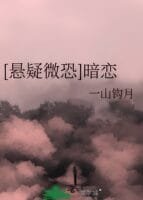Farm System C33
by MarineTLChapter 33
At 9 p.m. on February 19, Zheng Yunjie opened a news video on his tablet. It had been an hour since the Longxia News Broadcast aired. After it ended, Longxia News continued with a live segment on the rainfall in Mali. Now the entire internet was talking about the disaster.
Zheng Yunjie watched for a bit and opened the neighborhood owners’ group chat.
“This news is getting ridiculous.”
“Mali’s separated from us by the Aral Mountains. There’s no way we’ll get heavy rain.”
The group was buzzing with discussions about the disaster in Mali.
Zheng Yunjie, 37 years old, ran a flower shop. The flowers were growing well this year, and he had originally planned to open a branch at the end of the month. If acid rain hit, it would definitely impact cultivation. That’s why he’d been obsessively refreshing the news these past few days.
After reading the chat for a while, he asked, “Will we get acid rain here?”
“Of course not.”
“When has a weather forecast ever been accurate?”
“There are still fifty days until the end of March—can you predict the weather fifty days out?”
The group was confidently dismissive.
Zheng Yunjie let out a long sigh of relief.
It was spring—warm winds, blossoming flowers, and birdsong. In such a bright and promising season, acid rain just didn’t seem possible.
He chatted in the group for a while. Someone asked, “Is the supermarket crowded?”
“Packed.”
“Half an hour just to check out. [Image]”
“Tonight’s haul… [Image] [Image]”
The pictures were of the HappyHome Supermarket at the entrance of their complex. Residents were carrying big bags of rice, oil, and other essentials.
Zheng Yunjie: ???
The group admin posted a reminder: “I just spoke with the store manager—there might be a shortage of rice and flour in the next couple of days. If you haven’t stocked up yet, better grab some. @everyone.”
“For real?”
“I saw someone hoarding last week already.”
“We’re by the coast. If anything from Mali spreads, we’ll be the first affected.”
The owners’ group descended into a flurry of chatter. As they talked, Zheng Yunjie heard the sound of hurried footsteps.
He opened his window—many neighbors were heading to the supermarket in their slippers.
Zheng Yunjie asked, “Aren’t we supposed to be unaffected?”
“In theory, yes. But better safe than sorry,” some experienced residents replied.
Two years ago, the salt fields were polluted, and people across the country stockpiled salt.
Last year, when garlic prices were rumored to rise, everyone hoarded garlic.
Earlier this year, when pork prices went up, people started hoarding pork again.
For Longxia residents, a well-stocked pantry brings peace of mind. Hoarding is practically in their blood. They’ve lived through stockpiles of salt, garlic, peanuts… Compared to that, hoarding rice was almost routine. More than a necessity, it had become a tradition of joining in on the excitement.
Disaster preparedness.
A sense of security.
As the group continued chatting, the conversation shifted to which supermarket had cheaper cooking oil, which had cheaper rice.
By 9:30 p.m., Zheng Yunjie thought for a moment, then grabbed his keys and went downstairs.
Though he felt hoarding flour and rice was a bit much, he couldn’t deny it—his instinct to stockpile had kicked in.
An hour later, Zheng Yunjie came back upstairs carrying two bags of flour and a sack of rice. He had originally wanted to buy two bags of Fengshan rice like everyone else, but Fengshan flour had sold out earlier in the month. Now he had over 70 jin (35+ kg) of flour and rice in total—enough to last him six months at his usual pace.
As he walked into his apartment, he figured he’d shelve the flower shop expansion for now. The situation was still uncertain—better to hold onto some cash and reopen later.
“Boss, save me two bags of rice—I’ll pick them up tomorrow morning.”
“Do you guys have vermicelli or kelp? Frozen cabbage works too.”
“Boss Zhao…”
Over the next two days, all the provinces in southern Longxia were swept up in a wave of panic buying. While many felt the disaster coverage was exaggerated, the news had been nonstop for half a month. The live feeds from Mali were too horrific. Most people preferred to be prepared, just in case.
Amid this nationwide stockpiling, on February 20, the Ministry of Agriculture published an article: “Longxia Has Ample Grain Reserves—Buy Freely, Supply Will Follow.”
Using national data, the Ministry of Agriculture confirmed Longxia’s abundant grain stock. However, they also emphasized the dangers of the spreading disaster in Mali and called on citizens to conserve food. Alongside this call, the ministry also issued a new major grain policy:
Reduce food waste in the catering industry. Significant waste would lead to fines and education; extreme waste to detainment and re-education.
Limit supply of grain to non-essential industries like alcohol and pure grain beverages.
Promote local campaigns to encourage saving food. If needed, residents could grow vegetables on their balconies.
Expand aquaculture and marine farming, and increase agricultural diversification.
…
There were 72 specific measures. If the earlier weather warnings were alerts, these policies marked the beginning of actual disaster prevention.
“It’s not even that serious abroad.”
“Are we overreacting?”
“Mali hasn’t had rain the last two days.”
Some optimistic residents began to waver. Everyone looked up at the sky. The sun was shining, the wind was mild, and this spring felt even warmer than usual—there was no trace of disaster.
Though some hesitated, the tension in the air made most people double down on their hoarding.
Following the new policies, domestic grain prices saw a slight rise, but still stayed within a 50% range of the original prices.
When the Grain Policy was announced, the Ministry of Agriculture made a strong commitment: grain would always be available for purchase—no citizen would go without. The ministry also vowed to crack down on price-gouging, and all vendors were subject to public oversight.
The ministry’s announcement worked like a sedative. After the initial panic passed, residents everywhere began preparing in an orderly fashion.
At the same time, on the main street of Ruiwei, Mali, Fu Hantao looked up at the sky above him.
Fu Hantao was a reporter for Longxia News. He had been dispatched to Mali for on-the-ground coverage during the first rainfall on the 9th. Now, Ruiwei was one of the hardest-hit areas by acid rain. Yesterday’s rainfall had reached 597 mm. Cars on the street were being pushed together by the torrents. Doors and windows on high-rise buildings were damaged. The scene before him was all crumbling ruins.
“It should be done raining…” Zhao Xiuyin walked over absentmindedly.
Zhao Xiuyin was also a news reporter. The two often did live reports together.
“It’s not raining now, but there’ll be another round at three,” Fu Hantao sighed. According to the meteorological station, the rainfall would continue until the 27th.
After chatting for a while, Fu Hantao asked, “Is your arm feeling any better?”
“Much better.”
Zhao Xiuyin rolled up her sleeve. Her arm was covered with a dense rash. Although the redness had faded significantly, the severity from two days ago was still evident.
Acid rain refers to acidic substances in the atmosphere that fall to the ground in the form of rain, snow, or other particulates. Harma is a globally notorious industrial pollution zone. This cold air mass formed in central Harma, and due to proximity, this rain carried a large amount of acidic material. Under a microscope, the rainwater appeared visibly turbid and dark, with heavy industrial particles suspended in it.
Zhao Xiuyin developed the rash during a live outdoor broadcast when she was exposed to the rain. Her case wasn’t unique—over the past ten days, the Ruiwei hospital had received dozens of similar cases, a common type of chemical illness in Ruiwei.
Zhao Xiuyin rubbed her arm. Though treatable, the symptoms still caused physical harm.
Fu Hantao looked at her arm. “You should apply to the station for a break and go home to rest.”
Zhao Xiuyin shrugged it off. “Director Zhao already told me to go back. I don’t want to. At a time like this, switching reporters would just mean another person getting sick.”
Fu Hantao saw she wouldn’t budge and didn’t press further.
Half an hour later, the rain started falling again, pitter-pattering from the sky. The two quickly donned their rain hoods.
The second wave of rain was even fiercer than before. In some coastal areas, the rainwater came down black.
Watching the blackened rain, Zhao Xiuyin asked, “It won’t reach home, will it?”
“Not sure.”
Fu Hantao looked at the dark clouds in the distance. He had once believed the acid rain in Mali wouldn’t affect the homeland—but now, he wasn’t so certain.
…
The second round of rainfall swept across the entire Mali region. Like a virus, the acidic substances expanded and spread through the rain.
It wasn’t just Longxia anymore—countries around the world were beginning to grasp the danger.
“February 20th: Another torrential downpour in Ruiwei, Mali. Acidic content of the rain reached 870%.”
“Shuilan Union issues emergency deployment: Advises all nations to enter disaster alert readiness.”
“Black Rain in Mali: Nature’s Fury Unleashed.”
…
Now, acid rain dominated headlines at home and abroad. Frontline reports stated that 37% of Mali’s agricultural regions had been damaged. Entire surface areas in those regions were corroded. Global grain prices surged 50% in just three days.
In response, major exporters like Natal went from limiting exports to banning them entirely. The global situation grew increasingly tense.
…
“We’ve tried… technological means can’t stop it.”
On February 25th, inside Fengshan Farm, Liu Wensheng set down the phone.
A week earlier, Longxia had once again warned of the catastrophic nature of Mali’s rainfall. This time, the international community didn’t refuse but instead voted to intervene artificially in an attempt to halt the disaster.
Today, with global technological advancements, artificial rain and cooling systems were standard weather control methods. Despite the challenges posed by Harma’s rain, many believed the crisis could be averted through science. But the results proved otherwise—before nature’s wrath, human power was pitifully small.
Liu Wensheng lit a cigarette and looked at Qin Yun. “When does it rain back home?”
“March 25th.” That had been the date in his previous life.
On March 25th, the Harma storm first made landfall in Longnan, then pushed north. By the time he was reborn, Harma conditions had already appeared in northeastern Longxia.
“It can’t be stopped? How can it not be stopped…” Liu Wensheng burned with frustration. He’d prepared for this, but he hadn’t expected the real Harma phenomenon to be so brutal.
Qin Yun remained silent. In his previous life, countries had also tried artificial interventions as Harma spread globally. But the result was the same: an unstoppable disaster.
“Want one?” Liu Wensheng calmed down and offered Qin Yun a cigarette.
Qin Yun started to take it, then shook his head. “No thanks.”
In his past life, he’d picked up smoking under the crushing weight of the food crisis. This time, though the crisis remained, he kept reminding himself—everything would be different.
“Not smoking is good,” Liu Wensheng said, putting the cigarettes away. “The state’s preparing to harvest vegetables early.”
With about half a month before the acid rain hit, the country had decided to rush-harvest apples, cabbages, and other crops to minimize losses.
Qin Yun fully agreed. After the food crisis, while staple grains had increased tenfold, essential vegetables had skyrocketed beyond that. In the face of acid rain, vegetables were even more vulnerable than grain.
Ding. System updating…
Current Mission: A Useful Granary.
Mission Reward: Mad Sweet Potato Factory.
…
As they chatted, the system updated.
Qin Yun and Liu Wensheng both paused, eyes turning toward the system interface.
[A Useful Granary]: Utilize 20% of warehouse space.
[Mad Sweet Potato Factory]: This sweet potato factory… seems different.
…
This was the first mission after earning 10 million Starlight Points.










0 Comments